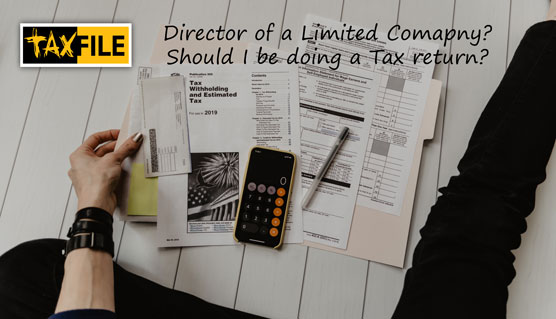As a Director do I need to file a Self Assessment Income Tax Return?
HMRC now states that where all of a director’s income is taxed at source and there is no other sources of income, then there is no need for them to register for self-assessment and to file a return.
If as a director you have been requested to submit a self assessment tax return, but have no other taxable income to report, then you can request for that notice to file to be withdrawn.
However if you meet any one of these following conditions then you must submit a tax return to HMRC:
- You are repaying a Student Loan (unless already accounted for in your PAYE)
- You receive Child or Bereavement Benefit (unless already accounted for in your PAYE)
- Receiving Interest from Shares, Funds, & other investments
- Receiving Foreign Income
- Receiving Rental/Lettings Income
- Receiving Dividends
The dates are independent of your companies accounting period and run from; 06/04/XX through to 05/04/XY, with the submission and monies that are owed sent through to HMRC by no later than 31/01/XZ.
It is wise not to leave filing your self assessment tax return till the last minute & at Taxfile we can help you get your figures correct so you only pay the correct amount of tax that you have to. If we do your company accounts, then make sure we get any information about other sources of income in ample time.
Time is now running low, so call us on 020 8761 8000 if you need to get your Self Assessment Income Tax return compiled, computed, and submitted before the 31/01/2021 deadline.





 HMRC are constantly reviewing who has and has not declared income properly from letting out property, whether that’s from short-term lets, long-term lets, holiday lets, letting rooms to students or to workforces. And with new, sophisticated, data sharing systems now in full force across many agencies, authorities, online, via tip-offs and surveillance, the Government has its sights on an estimated 1.5 million landlords who they think have under-paid tax.
HMRC are constantly reviewing who has and has not declared income properly from letting out property, whether that’s from short-term lets, long-term lets, holiday lets, letting rooms to students or to workforces. And with new, sophisticated, data sharing systems now in full force across many agencies, authorities, online, via tip-offs and surveillance, the Government has its sights on an estimated 1.5 million landlords who they think have under-paid tax. Back in January
Back in January HMRC (Her Majesty’s Revenue & Customs) has announced some new initiatives over the course of the last month and one of these is The Let Property campaign which is a campaign designed to recover undeclared tax from those receiving income from residential property lets. The idea is to encourage those landlords with under-declared income or gains (potentially including income tax, Capital Gains Tax and VAT) to contact them in order to make a full disclosure. By doing so they may well avoid the higher penalties which may be applied to them should HMRC discover the undeclared income/gains via other means. Don’t forget that they now have access to information shared across systems, including in relation to properties both at home and abroad, as well as being gained through their digital intelligence system ‘Connect’ which identifies links between individuals, entities and properties. So the message to landlords is loud and clear!
HMRC (Her Majesty’s Revenue & Customs) has announced some new initiatives over the course of the last month and one of these is The Let Property campaign which is a campaign designed to recover undeclared tax from those receiving income from residential property lets. The idea is to encourage those landlords with under-declared income or gains (potentially including income tax, Capital Gains Tax and VAT) to contact them in order to make a full disclosure. By doing so they may well avoid the higher penalties which may be applied to them should HMRC discover the undeclared income/gains via other means. Don’t forget that they now have access to information shared across systems, including in relation to properties both at home and abroad, as well as being gained through their digital intelligence system ‘Connect’ which identifies links between individuals, entities and properties. So the message to landlords is loud and clear!